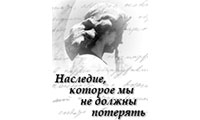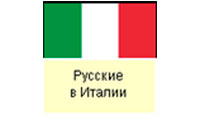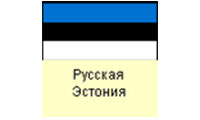Vera Anisimova
Vera Anisimova (2nd of September 1928, Kharkiv, Ukrainian SSR – 15th of June 2011, Zilupe Municipality, Republic of Latvia) – a teacher of Russian language and literature, a poet.
Her mother – Nina Samoilova (née Stelletsky, from a family of clergymen, Okhtyrka, Ukraine) – was a primary school teacher. Her father, Pyotr Samoilov, was an agronomist.
She began writing poetry as soon as she learned to read and write (even before entering school) and published her own homemade weekly newspaper titled “DEMOS.” It included poetry, prose, and reviews of the books she had read. From an early age, she was fond of embroidery, sometimes creating pieces that served as illustrations for her poems. Her childhood coincided with the years of the Second World War.
The stripe of sunset faded quickly,
The steppe spread out its patterned rug,
A moonlit night — no fairer, truly —
Unfurled her tent of stars above.
Through scented grass, soft-footed, going,
We heard the tender voice of plains:
Leftwards — tall rye fields, golden, glowing,
Rightwards — blue water, lilies’ chains.
The radiant distance called tomorrow,
Dreams drifted, wave on gentle wave.
We were so happy — we didn’t know, though:
Tomorrow would never come — only war would brave.
1941 — age 13
After finishing school, Vera enrolled at the Faculty of Philology of Kharkiv State University. From 1953 to 1988 she had been working as a teacher of Russian language and literature in secondary schools — the last twenty years at Riga Secondary School No. 60.
She moved to Latvia in 1965 and spent most of her life in Riga.
Alongside her teaching career, Vera published her poetry. Selections of her lyrical works appeared in newspapers and magazines, including Kaliningradskaya Pravda, Mayak, and the newspaper of the Baltic Military District Za Rodinu (“For the Motherland”). In Riga, her poems were published in Sovetskaya Latviya, Sovetskaya Molodyozh, and in the literary magazine Daugava.
In the final years of her life, Vera Anisimova’s poetry appeared regularly on the literary page edited by Aleksandr Yakimov, as well as in the poetry collection He Was from the Quiet Provincial Capitals... (pp. 11–13).
Her first collection of poems was published in 2000 in her native Kharkiv, Ukraine. A second edition appeared in Rēzekne, Latvia. In 2008, on the occasion of Vera Anisimova’s 80th anniversary, her daughter compiled and published a new collection of her poems.
The themes of Vera Anisimova’s poetry are diverse, yet all are united by a single motif — a song in praise of the strength and reason of humankind, of its creative labor; a celebration of moral values, duty, honor, and dignity.
Vera Anisimova’s radiant poetry is expressed through a variety of lyrical forms, with the sonnet being her most beloved.
Her poetry and embroidery are closely intertwined and inseparable. They were not a pastime, an escape, or a mere hobby — they were her very life, the essence of her being, the reflection of her nature.
Vera Anisimova passed away in her 83rd year, on June 15, 2011. She is buried in Latgale, Pasiene Parish, Zilupe Region.
Nina Adilevich,
daughter of Vera Anisimova.
We grew up too early,
we grayed all too soon,
our trace was erased
by the blizzard’s monsoon.
But wise was our youth —
on this trembling sphere
it marked out our path
with a fire sincere.
Impassive time
will level the trenches,
grass will reclaim
the guerrillas’ pathways.
Yet when the sky turns dove-soft and still,
the rebellious flame
will whisper: life
is an unending battle.
From continent to continent
rings out, so clear and daring,
the desperate cry, omnipotent,
of a newborn child declaring.
To those who live from day to day,
what warning does that crying send?
That there’s a limit to our way —
but what awaits us at its end?
When not a drop can comprehend
your boundless wisdom, Mother Nature,
how shall we, trembling, understand
life’s holy secret — of departure?
The Singing Shell
Curious, fragile, the seashell gleams,
its mystery born of creation —
it carries from ocean’s shadowed dreams
a song of deep revelation.
At times it calls to the stars above,
commemorates fallen heroes bright,
then beckons the living with earthly love,
and sounds its trumpet, summoning fight.
It hums with a never-ending tone,
not fleeting, not bound to cessation —
and thoughts unforeseen take wing, alone...
For only eternity sings
in such exaltation.
Vera Anisimova









